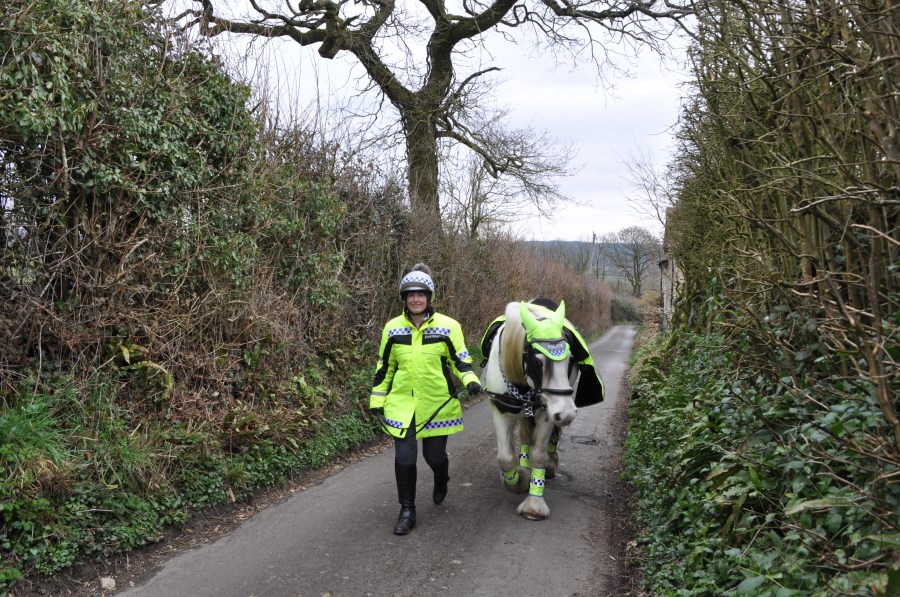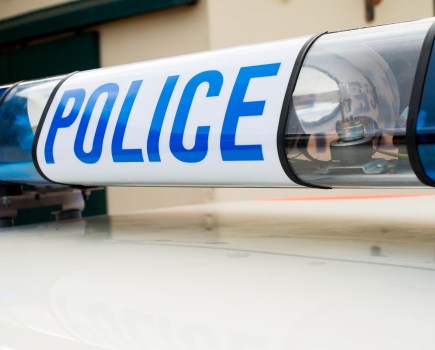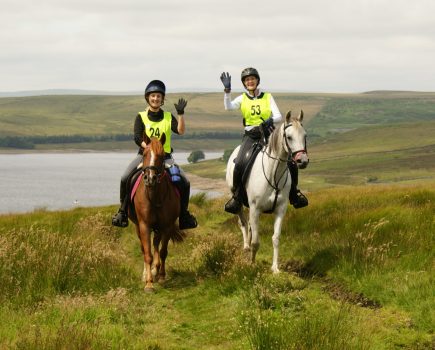When hacking a horse, no one wants to think about what could go wrong. Nonetheless, it’s important to be prepared should the worst happen. Falling off is a natural part of riding a horse, and it happens to every rider at some point or another, including whilst hacking out. But without the safety of an arena fence, many riders worry more about falling off on a hack.
I’ve only fallen off on a hack once, but it was incredibly worrying as it took a little while to catch my mare in the open field we’d been riding in. On another occasion, a friend fell off her horse whilst we were cantering – he bombed up from behind and set the other horses off. Fortunately, once we managed to all slow down, he came trotting over and it was easy to catch him as he didn’t want to stray far from his friends.
Not everyone is so lucky, however, and horses can get out onto bridleways or roads. There’s also yourself to consider – if you’ve fallen off, you might be injured. So what do you do?
Before you hack out
Before you head out, it’s key to be prepared. These tips from the BHS will set you up in good stead should the worst happen and you part company…
1 Add your contact information to your horse’s tack
You can use a simple tag with your name and mobile number on it, and pop it onto the D-ring on your saddle or your horse’s bridle (as long as it doesn’t impact their vision). This is crucial in case you part company and your horse runs away, as it will enable you to be reunited. If there’s space on the tag, you can always add your yard address on the back, too.
2 Plan your route
When you know where you’re going, let someone know what your plan is and what time you expect to be back. This means if you take longer than expected, someone will know to look for you.
3 Always carry your phone
There are plenty of benefits to keeping your phone handy – you can call a friend or the emergency services for help should you come off. If you’ve been knocked unconscious, anyone who comes across you will be able to access your ICE information.
Mobile phones also have fantastic tracking information – you can share your live location to make it easier to find you, or use an app like what.three.words to make it easier for emergency services to pinpoint where you are and get to you as quickly as possible.
What you should do if you fall off whilst hacking by yourself
Plenty of riders head out for solo hacks, but it’s important to know what to do in this occasion should you have an unplanned dismount.
“Should an accident occur, then practical knowledge of first aid procedures at the scene will make a remarkable difference,” says a spokesperson on behalf of the BHS. “Half the learnings are assessing the situation and deciding what the next steps are to take. Taking a course, like the BHS Two-Day Initial First Aid Course, will help you learn where to start, who to call for help and what to do while waiting for help to arrive.
“The BHS advise that you get help as quickly as possible in the event of serious and minor injuries. We also recommend using the what3words app so you can pinpoint your exact location to your emergency contact,” continues the spokesperson. “Make sure you have an emergency contact saved on your phone as well the number for your vet, in case you need to call them for your injured horse.”
What you should do if a you fall off in company
It can be confusing to know what to do in the event of a rider falling off in company and knowing what to prioritise.
“Make sure to keep as calm as possible in the event of an accident. It is advisable to have someone who is first-aid trained on your ride or have your emergency contact trained. Don’t hesitate to contact the emergency services – it is better to be safe than sorry in the event of an incident,” says the spokesperson. “For serious injuries, the most important thing is to get help quickly.”
Knowledge of first aid is important in this situation. Knowing even the basics will help you stay calm and in control in a stressful situation.
“First aid training will also give you the ability and, most importantly, the confidence to start with the ABCs (Airway, Breathing, Circulation), offering the injured party the best chance of survival,” adds the spokesperson. “Encouraging the rider to remain seated/lying down for a few minutes is key – staying still is the best thing to do to prevent injury. A rider might be confused or disorientated, particularly if they have been knocked unconscious, so do your best to remain calm and explain that they’ve had a fall and must stay still for the time being.”
What to do if your horse is injured
Many riders will also worry about what they should do in the event that their horse is loose or injured. The BHS recommends having your vets contact information saved on your phone, including their specific number for emergencies if they have one, as well as learning some equine first aid.
“It’s beneficial to build your knowledge of a few basic treatments and procedures, as well as having a first aid kid to hand when possible,” says the spokesperson. “Carrying a hoof pick with you when out on your hack can be beneficial, in case your horse stands on anything you might need to get out quickly to prevent further injury. If you would like to learn more about horse wellbeing and basic treatments, the BHS recommend taking the Horse Health Challenge Award.”
What happens if you fall off and might be in danger?
The majority of riders need to ride on roads, and having a fall on or near a road can put you at a higher risk of danger. Equally, falling off on busy bridleways or routes frequented by dog walkers can cause complications to an already stressful scenario.
“If an incident occurs on the roads, the BHS recommend getting to a safe location where possible. If an incident occurs because of a dog, removing the horse away from danger to calm them and assess any injury is the best practice,” says the spokesperson. “Take as much information about the scene which might help you later on if another party may be at fault. Photos, other parties’ details or if they don’t want to provide you with this information, any distinctive markings such as clothing, scars, tattoos, car registration, type of dog breed, or the colour of a cycle, to help identify someone when speaking with the police.
“If the injured parties are BHS members, the BHS recommend that you call the free legal helpline and have your membership number handy to access this service, which includes 10 thousand pounds for personal injury cover and up to 30 million pounds for public liability claims.”
Precautions you can take to stay safe
“Accidents can occur even with the best preparation. However, proper precautions can prevent serious injury and reduce the likelihood of accidents happening,” says the spokesperson. “These precautions are taught as part of the BHS’s Silver Ride Safe Award. The award is ideal for anyone who spends time around horses, from occasional riders to elite equestrians. Accompanying the award is the Ride Safe guide – a comprehensive book with everything you need to know about riding out.
“Some key points of information that participants will learn are the best practices for first aid training, planning your route, knowing the Highway Code and preparing ahead of time with high vis, proper safety equipment and sharing locations with others.
“The BHS also encourage anyone who has had an incident to report it on the Horse i app, no matter how small the incident may seem.”
Related content
- How to fall off safely
- Report all road incidents to the BHS to make a real difference to horse and rider safety, says Alan Hiscox
- What to do with an unconscious rider after a fall
- How to handle loose dogs on a hack – and what to do if your horse gets bitten
- How to report an incident — or a near miss — when riding a horse on or off the road to the BHS








